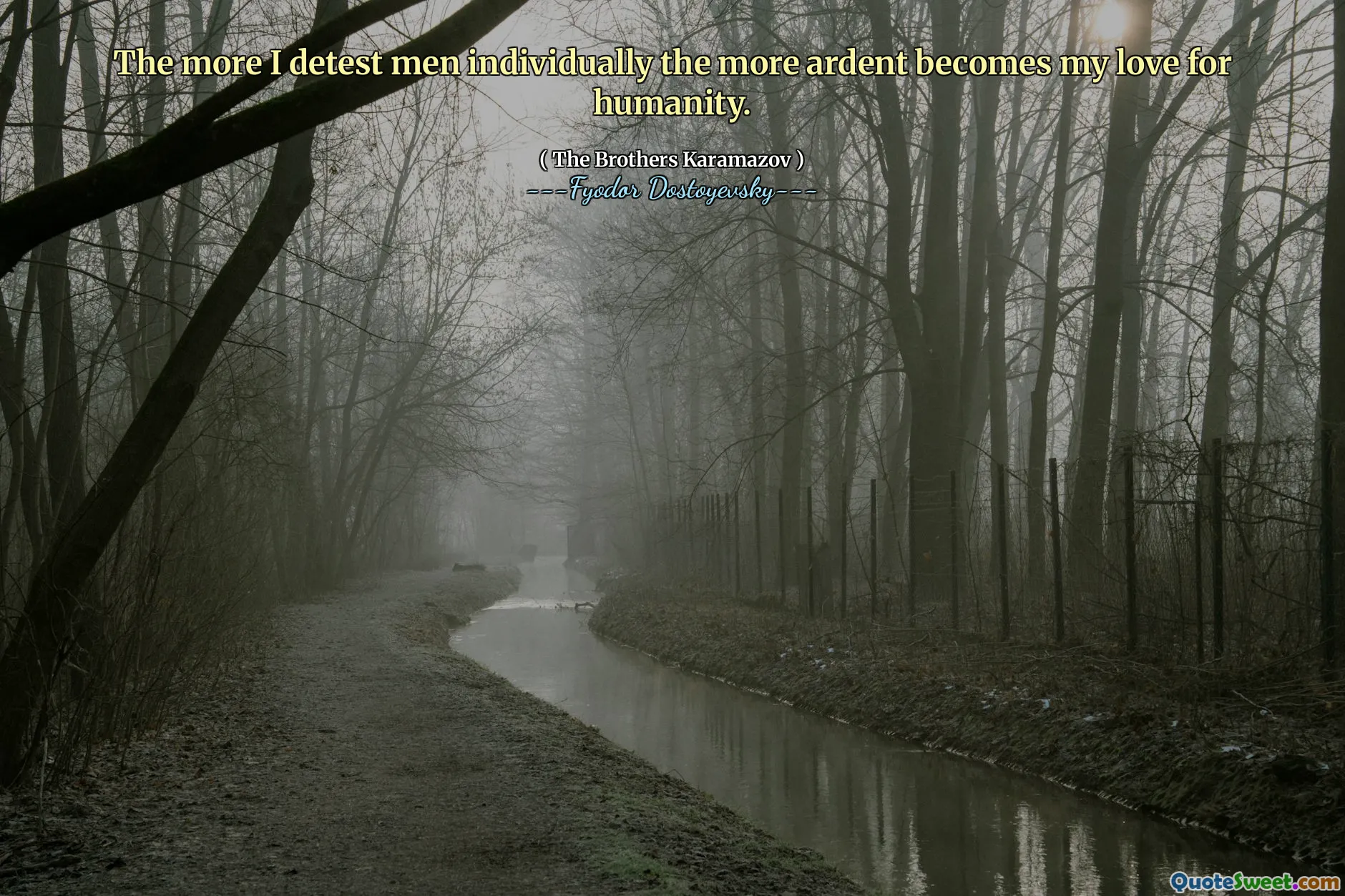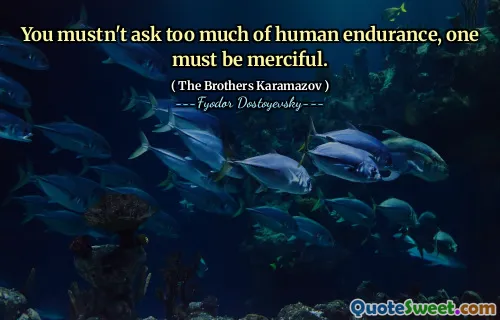
The more I detest men individually the more ardent becomes my love for humanity.
This quote from Fyodor Dostoyevsky's "The Brothers Karamazov" captures a profound paradox in human experience: the tension between personal disappointment in individuals and an overarching compassion for humanity as a whole. On one level, the quote reflects a deep frustration with the flaws and failings observed in people when encountered one on one. These encounters can reveal selfishness, cruelty, or weakness which can lead to disillusionment. Yet, contrastingly, the same disillusionment fuels a more passionate craving for a better, more humane collective—an idealized humanity that transcends individual imperfections.
This dichotomy resonates deeply in a world where individual actions often fall short of our highest ethical standards, yet a hope in humanity endures. Dostoyevsky challenges us to embrace the complexity of this feeling without succumbing to cynicism. It suggests that love for humanity is borne not from blind admiration but through a conscious reckoning with human nature—the good, the bad, and the imperfect. Furthermore, this love manifests as an ardent desire to improve the human condition despite personal disenchantment.
In reflective terms, this quote pushes for empathy that rises above anger directed at isolated wrongdoings. It presents a mature understanding that human beings collectively represent potential for kindness, justice, and love, even if the potential is frequently compromised by individual failings. This perspective encourages patience and forgiveness, fostering a vision of progress rooted in collective dignity rather than individual idealization.











